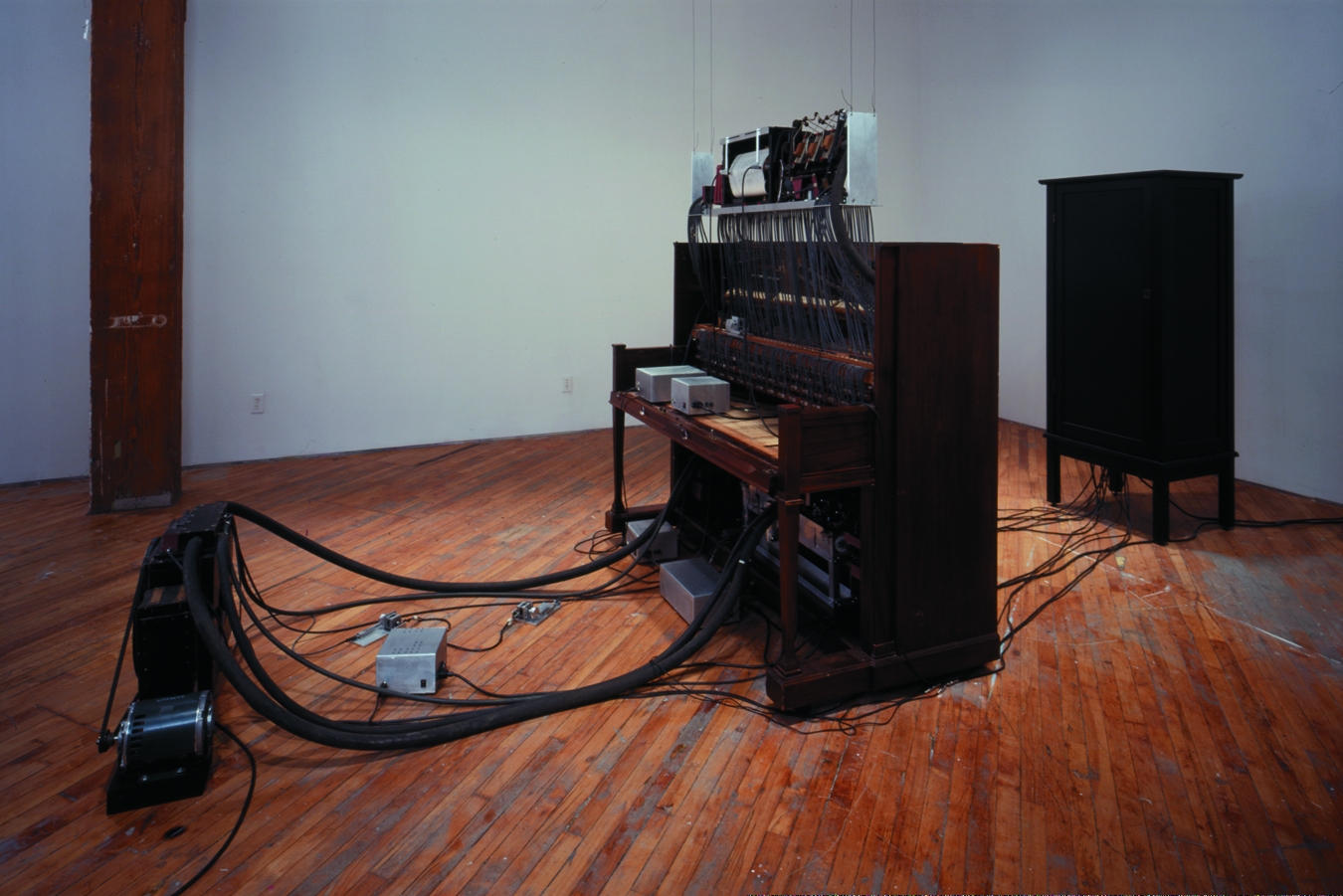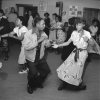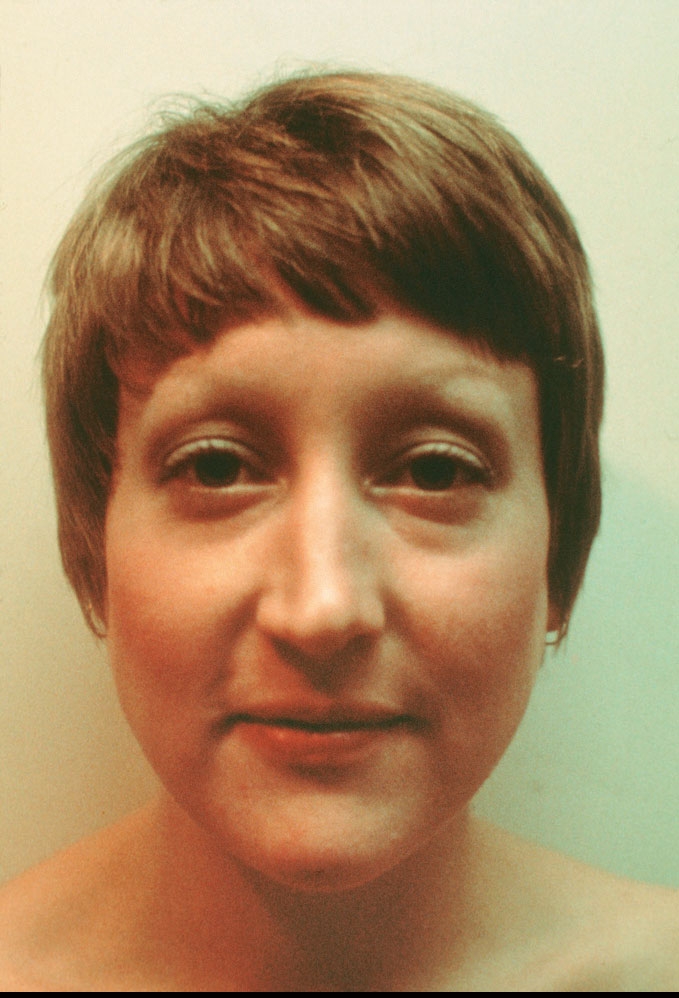Exhibitions and Events

Resounding
Opening Reception Thursday 28 May at 8 pm RESOUNDING presents works by five artists that explore unexpected ways of generating sound, either through the manipulation of musical instruments – both real and toy versions – or through the construction of musical objects. Through these works the artists examine ideas about intended and unintended ‘music’, harmony and disharmony and what happens when human control is partially relinquished in the pursuit of specific musical outcomes.
Martha Wilson: Staging the Self
Opening Reception Thursday 19 March at 8 pm Guided Tour with Artist Saturday 21 March at 2 pm Martha Wilson is an American feminist artist and gallery director who began her career in the early 1970s in Halifax while studying English Literature at Dalhousie University and teaching English at the Nova Scotia College of Art and Design. Working in a male-dominated Conceptualist milieu at that time, Wilson generated pioneering photographic and video work that explored her female subjectivity through role playing, costume transformations and invasions of male and other female personas.
Focus on African Filmmakers: Sembène and Sissako
Four February screenings for Nova Scotia’s celebration of African History Month will include two films each from that continent’s founding father of cinema, Ousmane Sembene, along with a pair of works by one of Africa’s most exciting new cinematic voices, Abderrahmane Sissako.
Screenings Tuesdays at 5:00 pm
February 3- Mandabi/The Money Order
Art: 21 Art in the Twenty-First Century
Now in its fifth season, the groundbreaking PBS series Art:21 -- Art in the Twenty-First Century provides a behind the scenes view of a diverse range of contemporary artists. Viewers observe intimate footage of artists at work in their homes, studios and communities and speaking in their own words about their practice.
The featured artists, including painters, photographers, sculptors, performance and video artists, represent the breadth of current artistic practice and demonstrate the relevance of contemporary art to everyday life.
Season 2
Agnès Varda: A Voice Beyond the New Wave
French director Agnès Varda fiction and non-fiction work in the cinema has gone well past her French New Wave and Feminist beginnings to examine and portray a world of compassion, ambiguity and direct visual poetry. This retrospective will look at a combination of both her dramatic and documentary works, from features to shorts.
SCREENINGS WEDNESDAYS AT 8PM
January 28- La Pointe Courte
Razzle Dazzle: The Uses of Abstraction
Opening Reception Thursday 22 January at 8 pm As an Official Canadian War Artist working in Halifax during World War One, it was Arthur Lismer’s job to document the naval activity in and around the busy wartime harbour. But as is evidenced in numerous sketches, drawings, and paintings, his aesthetic attentions were especially drawn toward the intensely abstract blocks and swirls of patterns and colour that clad many warships and converted ocean liners moving tens of thousands of troops overseas.
The 55th Annual SSFA Exhibition
Opening Reception Thursday 4 December at 8 pm
Our annual celebration of the creativity of students, staff, faculty and alumni of Dalhousie and King’s College, in painting, graphic art, photography, mixed media, video, sculpture and crafts.
How Real Was Neorealism... And Just How Far Was its Reach?
Join film curator Ron Foley Macdonald for an illustrated presentation on Italian Neorealism, its precursors, practitioners and policy, and its long and still-lingering influence in both Hollywood and Canada, and around the world.
Neorealism's Reach: From Film Noir to Cinema Verité
In conjunction with Photopolis: Halifax Festival of Photography taking place in and around the city this fall, the Dalhousie Art Gallery will present a series on the impact and reach of Italian Neorealism. This post-World War Two cinematic movement -- though brief, only twenty years or so-- had a worldwide impact on existing cinemas (Hollywood, for one) along with almost every new National Cinema that followed in its wake. All films are Italian with English subtitles.
SCREENINGS WEDNESDAYS AT 8PM
October 22 - Ossessione
Contemporary Issues in Art, Architecture & Design: Five Recent Noteworthy Feature Documentaries
October 21 - Manufactured Landscapes
Jennifer Baichwal, Canada, 2006, 83 minutes.
Edward Burtynsky's monumental enivronmental photography is caught on motion picture film by cinematographer Peter Mettler and director Jennifer Baichwal. A multiple award-winning feature documentary.
October 28 - My Architect
Nathaniel Kahn, USA, 2003, 110 minutes.






